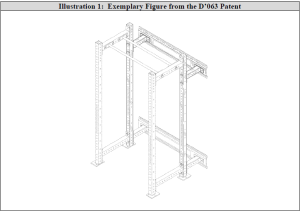 The court’s recent opinion by Justice Massa in Illinois Casualty Company (ICC) v. Thirty-Three Models addresses the key question of “Who decides?” in the context of arbitrability, focusing on whether disputes should be resolved by arbitration or through the courts based on the parties’ agreements. This case exemplifies an intellectual property law dispute centered on the right of publicity, which protects an individual’s identity from unauthorized commercial exploitation. The right of publicity grants individuals exclusive authority to license their own identity for commercial purposes, safeguarding their name, likeness, and other recognizable aspects from being used without permission for profit. By addressing the misuse of a person’s identity for commercial gain, this case shows the importance of upholding intellectual property rights to ensure individuals retain control over how their identity is used in the marketplace.
The court’s recent opinion by Justice Massa in Illinois Casualty Company (ICC) v. Thirty-Three Models addresses the key question of “Who decides?” in the context of arbitrability, focusing on whether disputes should be resolved by arbitration or through the courts based on the parties’ agreements. This case exemplifies an intellectual property law dispute centered on the right of publicity, which protects an individual’s identity from unauthorized commercial exploitation. The right of publicity grants individuals exclusive authority to license their own identity for commercial purposes, safeguarding their name, likeness, and other recognizable aspects from being used without permission for profit. By addressing the misuse of a person’s identity for commercial gain, this case shows the importance of upholding intellectual property rights to ensure individuals retain control over how their identity is used in the marketplace.
The main issue explored in this opinon is who has the authority to decide if a dispute must be resolved through arbitration. The court considered two primary questions:
- Does incorporating American Arbitration Association (AAA) rules indicate a clear intent to delegate arbitrability to an arbitrator.
- Did ICC, the Insured Clubs, and the Models (by assignment) agree to arbitrate arbitrability for the claims asserted by each Model?
The court’s opinion states that parties can delegate the decision of arbitrability to an arbitrator if there is clear and unmistakable evidence. Incorporating AAA rules into an arbitration agreement is widely seen as providing this evidence. AAA Rule 7(a) grants arbitrators authority over their jurisdiction, including objections about the arbitration agreement’s existence, scope, or validity.
The case involves ICC and several strip clubs (the Insured Clubs) that used the Models’ images without authorization for advertisements. The Models sued under the Lanham Act, Indiana’s Right of Publicity Law, and for unjust enrichment. The Insured Clubs sought coverage from ICC under their business insurance policies, which included an arbitration clause added in 2016. This clause required arbitration according to AAA rules, implying an intent to delegate arbitrability to an arbitrator.
The court’s opinion is twofold:
- For claims from 2016 and later: The court held that the incorporation of AAA rules in the arbitration agreement between ICC and the Insured Clubs is clear evidence that arbitrability should be decided by an arbitrator, aligning with the majority of jurisdictions.
- For claims before 2016: Since no arbitration agreement existed between ICC and the Insured Clubs before 2016, the Models cannot compel arbitration for earlier claims.
This opinion is consistent with the broader legal landscape where courts generally agree that incorporating AAA rules delegates arbitrability decisions to an arbitrator. It emphasizes respecting the clear intent of parties as expressed in their agreements and adhering to contractual terms.
The court’s opinion underscores a critical principle in arbitration law: the necessity of clear and unmistakable evidence when parties intend to delegate arbitrability to an arbitrator. By affirming that incorporating AAA rules meets this threshold, the decision reinforces the importance of contractual agreements in determining the forum for dispute resolution. This precedent clarifies the interpretation of arbitration clauses and ensures that parties’ intentions are upheld.
- SEO Powered Content & PR Distribution. Get Amplified Today.
- PlatoData.Network Vertical Generative Ai. Empower Yourself. Access Here.
- PlatoAiStream. Web3 Intelligence. Knowledge Amplified. Access Here.
- PlatoESG. Carbon, CleanTech, Energy, Environment, Solar, Waste Management. Access Here.
- PlatoHealth. Biotech and Clinical Trials Intelligence. Access Here.
- Source: https://www.iniplaw.org/7663-2/
- :has
- :is
- :where
- 2016
- a
- AAA
- About
- According
- Act
- added
- addresses
- addressing
- adhering
- agree
- Agreement
- agreements
- aligning
- American
- an
- and
- arbitration
- arbitrator
- ARE
- AS
- aspects
- asserted
- assignment
- Association
- authority
- authorization
- based
- BE
- before
- being
- between
- broader
- business
- by
- CAN
- cannot
- case
- cases
- centered
- claims
- clear
- clubs
- commercial
- company
- considered
- consistent
- context
- contractual
- control
- Court
- Courts
- coverage
- critical
- decide
- decided
- decision
- decisions
- delegates
- determining
- Dispute
- Dispute Resolution
- disputes
- each
- Earlier
- emphasizes
- enrichment
- ensure
- ensures
- evidence
- examination
- Exclusive
- exemplifies
- existed
- existence
- exploitation
- Explored
- expressed
- focusing
- For
- Forum
- from
- Gain
- generally
- grants
- Held
- How
- HTTPS
- icc
- Identity
- if
- images
- importance
- in
- included
- Including
- incorporating
- indicate
- individuals
- insurance
- intellectual
- intellectual property
- intend
- intent
- intentions
- interpretation
- into
- involves
- issue
- IT
- jurisdiction
- jurisdictions
- Justice
- Key
- landscape
- later
- Law
- Legal
- License
- Main
- Majority
- marketplace
- max-width
- Meets
- misuse
- model
- models
- must
- name
- necessity
- no
- objections
- of
- on
- Opinion
- or
- Other
- over
- own
- parties
- permission
- plato
- Plato Data Intelligence
- PlatoData
- policies
- Precedent
- primary
- principle
- Profit
- property
- Property Rights
- protects
- providing
- publicity
- purposes
- question
- Questions
- recent
- reinforces
- required
- Resolution
- resolved
- respecting
- retain
- right
- rights
- Rule
- rules
- safeguarding
- scope
- seen
- several
- should
- Shows
- since
- sought
- States
- Strip
- sued
- terms
- that
- The
- their
- There.
- this
- threshold
- Through
- to
- two
- unauthorized
- under
- underscores
- upholding
- used
- validity
- when
- whether
- which
- WHO
- widely
- with
- without
- zephyrnet












